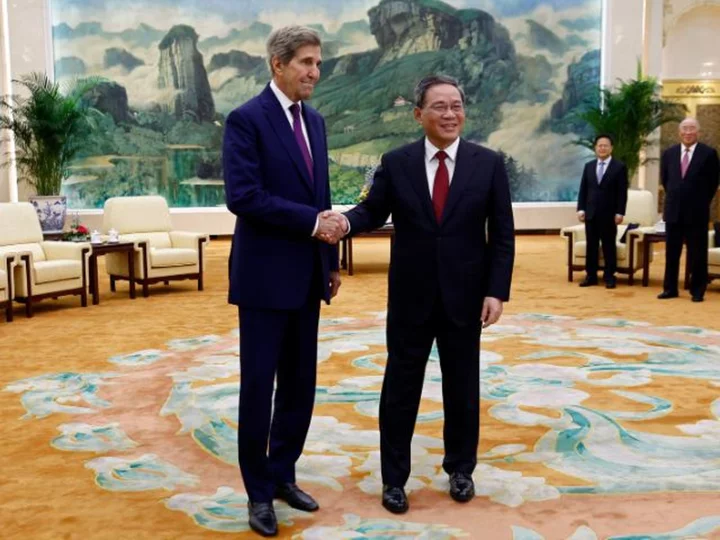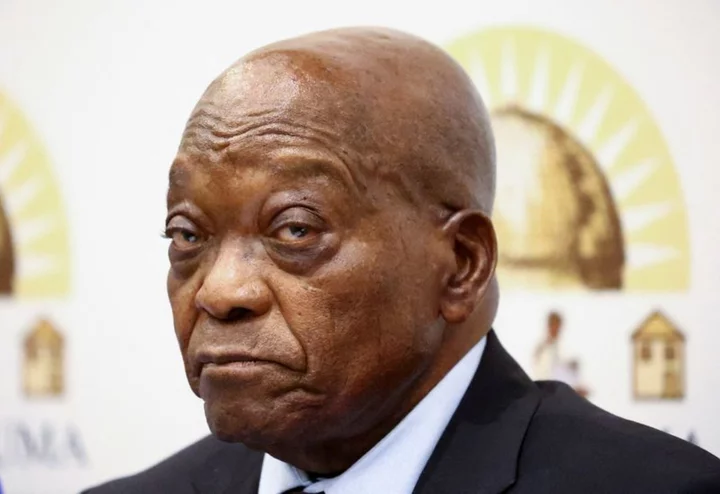China will follow its own path to cut carbon emissions, leader Xi Jinping vowed Tuesday, as US climate envoy John Kerry called for faster action to confront the climate crisis in a high-profile visit to Beijing.
Xi told a national conference on environmental protection that China's commitment to its duel carbon goals -- reaching a carbon peak by 2030 and carbon neutrality by 2060 -- is "unwavering," according to state news agency Xinhua.
"But the path, method, pace and intensity to achieve this goal should and must be determined by ourselves, and will never be influenced by others," he said.
The comments came as Kerry met China's Premier Li Qiang and top diplomat Wang Yi Tuesday, with Washington and Beijing -- the world's two largest polluters -- resuming their long-stalled climate talks amid scorching heat waves across much of the globe.
In the meeting with Li, Kerry stressed the "need for China to decarbonize the power sector, cut methane emissions, and reduce deforestation," a spokesperson for the US State Department said in a statement.
He also urged China to "take additional steps to enhance its climate ambition in order to avoid the worst impacts of the climate crisis."
China has invested heavily in clean energy in recent years. Its solar capacity is now greater than the rest of the world combined, and the country is also leading the world in wind capacity and electric vehicles.
On the other hand, it has accelerated the approval of new coal plants due to a renewed focus on "energy security," sparking concerns from environmentalists that these new projects will make the shift away from coal slower and more difficult.
But Xi's remarks at the conference suggest that China has no desire to be pushed, or be seen to cave to pressure -- especially from the United States.
China and the US are the world's two biggest greenhouse gas emitters, so any attempt to address the climate crisis will need to involve deep emissions cuts from these two powerhouse nations.
China's emissions are more than double those of the US, but historically, the US has emitted more than any other country in the world.
China and other fast developing nations have long argued that the world's richest countries, especially those in the West, were able to become wealthy while churning out huge carbon emissions for decades.
Relations between the US and China are at their worst in years with the world's two largest economies feuding over a host of issues, from geopolitics to trade and technology.
The US has said climate cooperation with China should be a standalone issue, separate from their disputes.
But Beijing views it differently. Last year, it cut off climate talks with the US in protest at then-House Speaker Nancy Pelosi's visit to Taiwan -- in the middle of the worst heat wave China had seen in six decades.
It also halted cooperation on other common causes issues, including communications between military and law enforcement.
That difference in views has been on full display in Beijing, even as the two sides return to the table to restart talks.
When meeting Wang, China's top diplomat, on Tuesday, Kerry stressed the two countries "cannot let bilateral differences stand in the way of making concrete progress" on climate cooperation.
But Wang insisted this cooperation "cannot be separated from the overall environment of Sino-US relations." He urged the US to pursue a "rational, pragmatic and positive policy toward China" and "properly handle the Taiwan issue," referring to the democratic self-ruled island that Beijing claims sovereignty over.
On Wednesday, Kerry reiterated his message to Chinese Vice-President Han Zheng that climate should be handled separately from broader diplomatic issues, Reuters reported.
Acknowledging the diplomatic difficulties between the two sides in recent years, Kerry said climate should be treated as a "free-standing" challenge that requires the collective efforts of the world's largest economies to resolve, according to Reuters.









